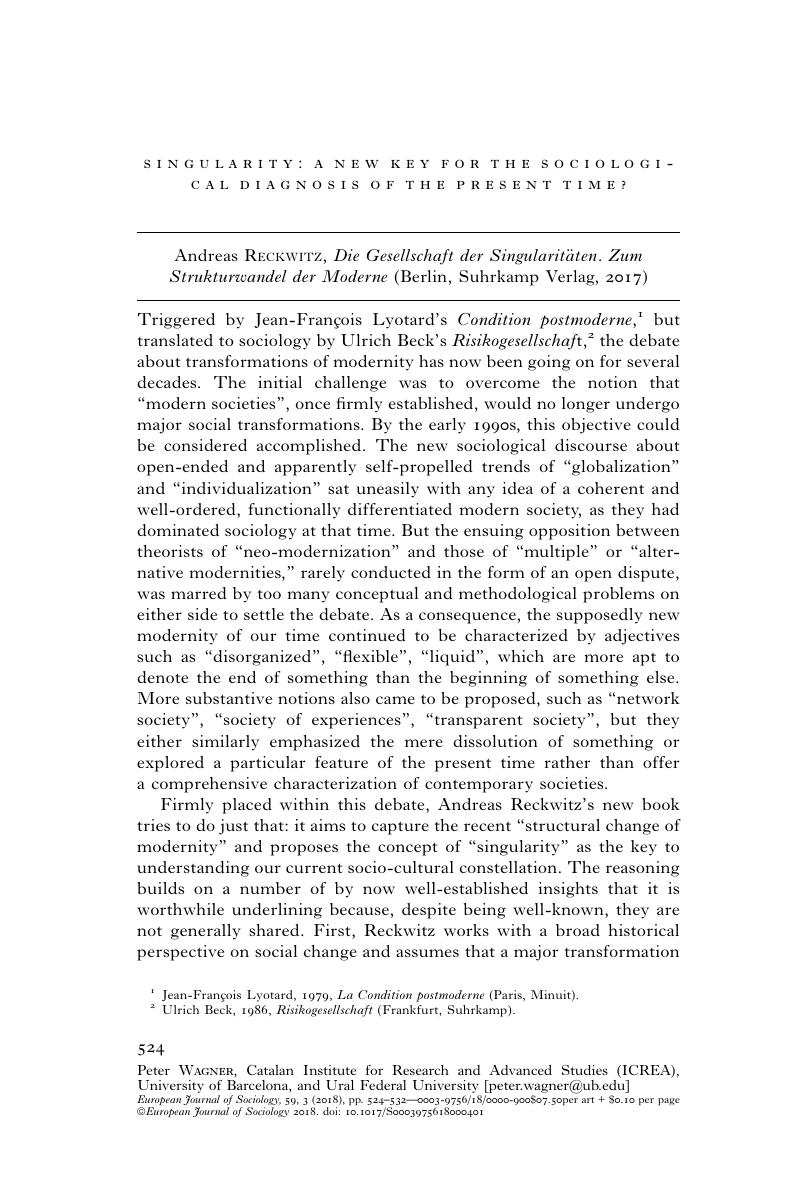No CrossRef data available.
Published online by Cambridge University Press: 31 January 2019

1 Jean-François Lyotard, 1979, La Condition postmoderne (Paris, Minuit).
2 Ulrich Beck, 1986, Risikogesellschaft (Frankfurt, Suhrkamp).
3 Alain Touraine, 1992, Critique de la modernité (Paris, Fayard).
4 Luc Boltanski and Eve Chiapello, 1999, Le Nouvel esprit du capitalism (Paris, Gallimard).
5 See Luc Boltanski, 2018, “Historical sociology and sociology of history”, Social Imaginaries, vol. 4(1).
6 Luc Boltanski and Arnaud Esquerre, 2017, Enrichissement (Paris, Gallimard).
7 See recently Stephan Lessenich, 2016, Neben uns die Sintflut. Die Externalisierungsgesellschaft un d ihr Preis (Berlin, Hanser); with more focus on selected Southern and Northern societies: Aurea Mota and Peter Wagner, 2019, Collective action and political transformation. The entangled experiences of Brazil, South Africa and Europe (Edinburgh, Edinburgh University Press).
8 See recently Luc Boltanski, 2009, De la critique (Paris, Gallimard); for my own view Peter Wagner, 2016, “World-sociology: an outline”, Social Imaginaries, vol. 2(2).
9 For my own recent proposal, see Peter Wagner, 2015, “Interpreting the present: a research programme”, Social Imaginaries, vol. 1(1).